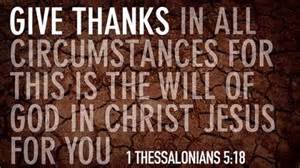 “O most gracious God,” wrote the eloquent sufferer, “on this sickbed I feel under your correction, and I taste of humiliation, but let me taste of consolation, too.”
“O most gracious God,” wrote the eloquent sufferer, “on this sickbed I feel under your correction, and I taste of humiliation, but let me taste of consolation, too.”
John Donne, poet and priest, so wrote in one of his “devotions” in 1623. In Christianity Today some fifteen years ago, Philip Yancey shared a brief edited, somewhat modernized, excerpt of Donne’s “Devotions.”
As Yancey explains, Donne had fallen seriously ill. Not unreasonably, he assumed he had contracted the bubonic plague, the scourge filling graves with masses of people during those dark days. The “Black Death” had made its presence unmistakable. London’s church bells tolled “dolefully,” and Donne wrote his famous poem, “For Whom the Bell Tolls,” reminding his readers that the loss of anyone is a loss to us all. So, don’t ask “for whom the bell tolls,” he penned, “it tolls for thee.”
In his “Devotions” (as Yancey shares them), Donne writes of all the blessings God has given.
“Nature reaches out her hand and offers corn, and wine, and oil, and milk; but it was you [God] who filled the hand of nature with such bounty.”
Donne thanks God for the blessings that come from fruitful labor, and he acknowledges that, no matter how hard and well the laborer has worked, it is God who guides and “gives the increase.”
He thanks the Lord for friends who “reach out their hands to support us,” even as he acknowledges, “but your hand supports the hand we lean on.”
I’m continually amazed at how suffering is used by some as Exhibit A against God, at the very same time as others, passing “through the fire,” eventually come out with faith strengthened and “tempered.”
On his sickbed, Donne writes, “Once this scourge has persuaded us that we are nothing of ourselves, may it also persuade us that you are all things unto us.”
In striking contrast to the verbal drizzle of those who promise health and wealth to the faithful, or to those whose “faith” is in consumer religion as long as it “meets their [most shallow] needs,” Donne reminds us that when God’s own Son on the cross “cried out, ‘My God, my God, why hast thou forsaken me?’ you reached out your hand [Lord,] not to heal his sad soul, but to receive his holy soul.” And Jesus surrendered his soul to his Father in trust.
Donne would recover. His sickness was not the plague. But before he knew the certainty of the outcome, he was certain of his hope: “Whether you will bid my soul to stay in this body for some time, or meet you this day in paradise, I ask not.”
But he wrote his confidence: “I can have no greater proof of your mercy than to die in you and by that death be united in him who died for me.”
Following the Apostle Paul’s admonition to “give thanks in all circumstances” (1 Thess. 5:18) is not even a little easy. But if our lives show that our faith is in God—not in luck or our own power or circumstances—we will learn that easy lives and blessed lives are not the same thing. And not just our own faith will strengthened and affirmed, and not just our own lives will be blessed by that trust.
You’re invited to visit my website at http://www.CurtisShelburne.com!
Copyright 2015 by Curtis K. Shelburne. Permission to copy without altering text or for monetary gain is hereby granted subject to inclusion of this copyright notice.
